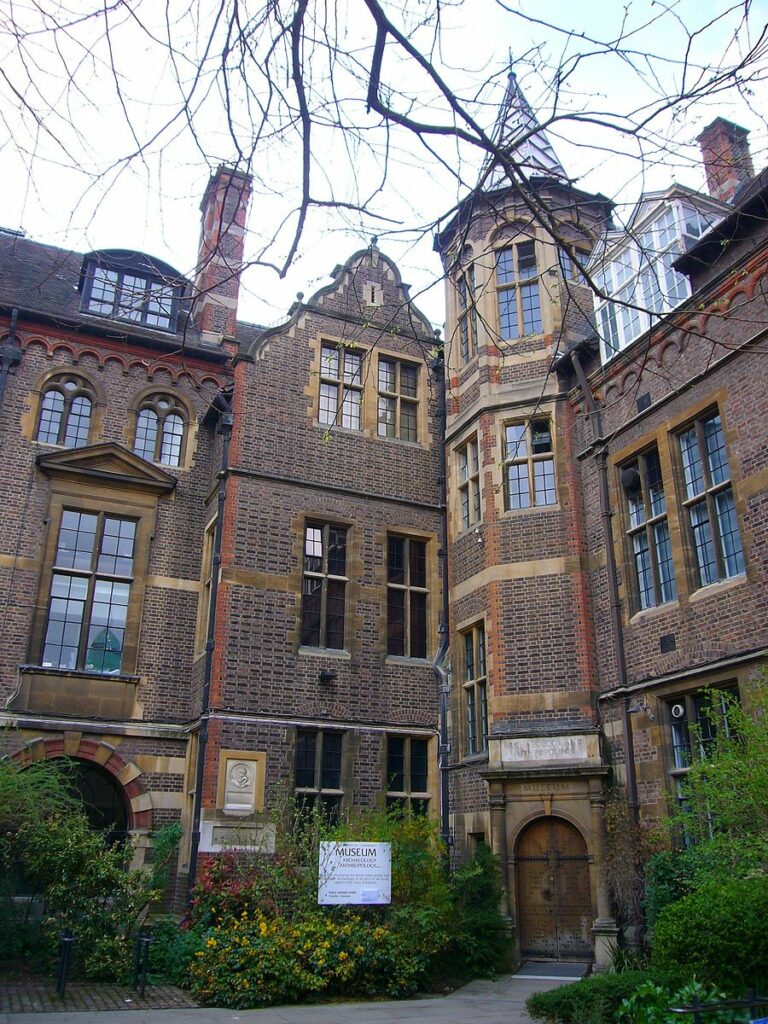
The way we organise teaching in the Social Anthropology department respects lecturers’ autonomy (which I think is a very good thing) and so our decolonising initiatives have been quite fluid. In response to the initial meeting of the decolonise anthropology group some years ago now, I and I think most of my colleagues started by taking another look at our teaching practice and our reading lists. I realised that my lists had become a bit complacent and stale, which was quite challenging for me when I had thought of myself as one of the ‘good guys’. I therefore tried to bring in more non-canonical perspectives and texts throughout. I am not alone in this, and also I would not pretend to have finished that process. I must admit that with some of my development lectures, I found that in my reworking I ended up setting key texts by elite men from the Global South. I remain unsatisfied with my inability to resolve that particular question, but I hoped that taking a critical perspective on development as a colonial project and highlighting theory from the South I was at least doing something.
In general, I think that in the department we’ve tried to be integrative, by which I mean weaving decolonial principles throughout our work, to greater or lesser success. The two courses that we introduced and that are mentioned in this collection – on ‘World Theory’ and ‘Anthropological Lives’ – are now, we hope, more integrated into our main teaching rather than set somewhat apart as a space for ‘decolonial anthropology’. We’ve continued to work on this for SAN3, for example. Maybe it won’t work so well; we’ll have to see, and modify if necessary. Other initiatives we’ve been involved in have happened through the Museum of Archaeology and Anthropology, in the Haddon Library’s collections and in student admissions to the HSPS Tripos.

“File: Museum of Archeology and Anthropology, Cambridge.jpg” by Magnus Manske is licensed under CC BY-SA 3.0.
I do think that as teachers of anthropology we need to reckon with our colonial history as a discipline, which I think requires knowledge of how our canons developed, and of the various ways that anthropology’s colonial and imperial practices have been critiqued throughout our own disciplinary history. One thing that the decolonise anthropology meetings prompted for me was a reminder of the various waves of self-critique that we have been educated in as anthropologists. I’m thinking for example – for anglophone anthropology – of Talal Asad’s work (1973), the controversies over Project Camelot and the Vietnam war in the 1970s (see Price, 2016), Writing Culture in the 1980s, the critical anthropology of development in the 1990s (Escobar, 1995; Esteva & Prakash, 1998), and the debates about Human Terrain Systems in the early 2000s. My own formation was through the critical anthropology of development of the 1990s and of the social movements of the 1990s-2000s. The decolonising anthropology movement does feel more consequential to me, but I see precursors in our disciplinary history.
I also welcome the call to diversify the texts and authors we draw on, I just think that it’s an enormous challenge and not something that all of us can do straight away, although that doesn’t of course mean we should postpone it indefinitely. We are the products of our own education as well, and it is something of a balance, which we won’t always get right. But with new people coming into the department, new students to challenge and educate us, and new stuff to read, I think our anthropology will improve. Whether it will fully decolonise I don’t know – indeed I wonder if decolonisation is a process that would or could have an end. Perhaps declaring an end would be a form of political complacency and therefore undesirable.
I want to conclude this piece with some cautious reflections and questions that I’m grappling with. In an important article, Silvia Rivera Cusicanqui (2010, 2012) critiques the social sciences’ gatopardismo – the policy of changing everything so that everything remains the same. She warns of academic practice that through the language of the decolonial might actually participate in the racialisation and exoticism of very recognisable and still colonial multiculturalism; creating new canons and ‘new gurus’ certified by the US academy and embedded in governmental projects. She advocates for a political economy of knowledge instead of a ‘geopolitics’ of knowledge, which I think is a good contrast to bear in mind. Her essay is utterly embedded in a particular Latin American indigenous and intellectual history of thought and experience that she demands her readers know and if we don’t, then learn about; and she regards North Atlantic academia with utter disdain. She points out that ‘Ideas run, like rivers, from the south to the north and are transformed into tributaries in major waves of thought. But just as in the global market for material goods, ideas leave the country converted into raw material, which become regurgitated and jumbled in the final product’ (2012: 104). Am I appropriating her thought by citing her in my teaching and writing (and therefore ‘decolonising’ my reading lists)? I find her body of work inspiring in her commitment to activism, which includes – among other things – both documenting indigenous movements and critiquing structures of internal colonialism. To me, this feels more anticolonial than decolonising. Can I contribute to such a project from Cambridge? Would it be avoiding responsibility if I were to say that this constitutes a kind of extraction and it’s not my place to do so? In sum, could we decolonise anthropology by trying to produce anticolonial anthropology, as far as we can and from wherever we are located in the political economy of knowledge?
Sian Lazar is the author of books on different kinds of collective politics in Bolivia and Argentina, and edited collections on citizenship and labour mobilisation. Her most recent book is How We Struggle: A Political Anthropology of Labour, published by Pluto Press. She is currently the Head of the Department of Social Anthropology at the University of Cambridge.
References
Asad, T. (1973). Anthropology and the Colonial Encounter.
Escobar, A. (1995). Encountering Development. The Making and Unmaking of The Third World. Princeton University Press.
Esteva, G., & Prakash, M. S. (1998). Grassroots Postmodernism: Remaking the Soil of Cultures. Zed Books.
Price, D. H. (2016). Cold War Anthropology. The CIA, the Pentagon, and the growth of dual use anthropology. Duke University Press.
Rivera Cusicanqui, S. (2010). Ch’ixinakax utxiwa. Una reflexión sobre prácticas y discursos descolonizadores. Tinta Limon.Rivera Cusicanqui, S. (2012). Ch’ixinakax utxiwa: A Reflection on the Practices and Discourses of Decolonization. South Atlantic Quarterly, 111(1), 95-109.